The Significance of Upgrading Your Home with a New AC Installation
TL;DR: Upgrading your home AC system brings energy efficiency, improved indoor air quality, and increased home value. Signs you need an upgrade include inadequate cooling, frequent repairs, and an old unit. Choose the right size and type of system based on your home’s needs. Professional installation and maintenance are crucial for optimal performance and avoiding risks like inadequate airflow, refrigerant leaks, electrical faults, and non-compliance with building codes. Contact Elevated Comfort for a hassle-free upgrade and enjoy a comfortable, efficient home environment with significant savings.
Ensuring your AC unit operates effectively isn’t just about keeping your home cool. It’s about enhancing the quality of your living space and guaranteeing energy efficiency.
Whether you’re dealing with a split system that distributes air through ductwork or a more compact ductless unit perfect for homes without existing ductwork, upgrading your home with a new AC installation can help. This guide will go over the benefits of upgrading your home AC system, how to choose the most suitable option for your needs, and the importance of professional installation and routine maintenance to ensure optimal performance.
Ready to elevate your home’s HVAC system? Then, let’s dive right in!
Recognizing the Signs Your AC Needs Upgrading
When it comes to the comfort of your home, your AC unit plays a crucial role. However, it has its lifespan and performance indicators. Here are key signs that your AC needs an upgrade:
- Inadequate Cooling. If your home isn’t cool enough, it might be due to a poorly maintained HVAC system or an improperly sized unit. Regular maintenance often resolves minor issues, but a persistently underperforming unit may need replacement.
- Frequent Repairs. Regular calls to an HVAC technician signal a deeper problem. Compare the cost of ongoing repairs with the price of a new, more efficient unit. Newer models with higher SEER ratings can significantly reduce your expenses, so keep that in mind.
- Age and Efficiency. Air conditioners typically last around 15 years. If yours is over a decade old, upgrading can enhance energy efficiency, leading to savings of 20% to 40% on energy costs. Plus, newer models use eco-friendly refrigerants, contributing to environmental conservation.
Benefits of Upgrading Your Home AC System
Upgrading your home AC system brings a plethora of benefits that extend beyond mere cooling. Let’s dive into why making the switch to a modern, energy-efficient air conditioner is a cool decision for both your wallet and comfort:
Energy Efficiency and Savings
Thanks to higher SEER ratings, purchasing a new, more energy-efficient model can save you up to 38% on utility bills and 7.8% on energy consumption. Today’s AC units aren’t just about cooling, but they also operate without producing too much noise.
Improved Indoor Air Quality and Comfort
Thanks to upgraded filters and air purifiers, new models improve indoor air quality by filtering out pollutants, allergens, and even microscopic organisms. Variable-speed fans and smart thermostats ensure your home remains at your preferred temperature, eliminating hot or cold spots and maintaining optimal humidity levels.
Increased Home Value and Durability
High-efficiency models operate more efficiently, reducing wear and tear and potentially doubling the lifespan of your AC unit. Embracing a high-efficiency AC system is a positive upgrade but also a smart investment in your home’s future, promising savings, comfort, and peace of mind.
Choosing the Ideal AC System for Your Home
Deciding which is the right AC system for your home doesn’t need to be a chore. Here’s a straightforward approach to ensure you make an informed decision:
Proper Sizing
The perfect fit is crucial. A system that’s too big won’t get rid of the humidity in your household due to frequent repetitive on-and-off cycles. If it happens to be too small, it’ll be running non-stop, increasing wear and tear.
Take into account your home’s square footage, climate, number of windows, insulation quality, ceiling height, and even the amount of sunlight your home receives.
Types of AC Systems
Once you have determined the most suitable size for a new AC unit in your home, let’s explore what different types of AC systems you can choose from:
- Central Air Conditioning. Ideal for homes with existing ductwork. It includes an indoor coil and an outdoor condenser.
- Ductless Systems. Perfect for homes without ducts. These systems consist of an outdoor condenser and indoor air handlers.
- Heat Pumps. Offer both heating and cooling, functioning like an air conditioner in warmer months.
Maintenance Requirements
Upgrading your AC unit is like giving your home a high-tech makeover, ensuring it stays cool without breaking the bank. Let’s see how this upgrade can be a game-changer for both your comfort and wallet. Professionals measure, size, and ensure your system fits like a glove, boosting efficiency and extending your unit’s lifespan. Plus, they come with a magic shield – warranty protection that guards against future troubles.
Regular check-ups by a pro can spot sneaky issues before they turn into energy-gobbling monsters, keeping your system running smoothly and saving you money.
Incorporating these elements maximizes energy efficiency and turns your home into a haven of comfort and savings, making the upgrade process surprisingly fun and rewarding.
Understanding AC Functionality
Air conditioners recycle the air inside your home, not bringing in outdoor air. This means the quality of your indoor air largely depends on how clean your system is. The air filter in your HVAC system traps dust, pollen, and other allergens. However, it’s not a purifier. You must pay attention to these filters if you want them to keep the air as clean as possible.
Try to replace your air filters every three months. This simple step can significantly remove pollutants from your indoor air. Regular maintenance by HVAC professionals ensures your system operates efficiently, catching any potential issues before they compromise your air quality.
Inspecting and cleaning air ducts are crucial for preventing the accumulation of dust and allergens that can circulate through your home. By focusing on these areas, upgrading your AC unit becomes more than just a cooling upgrade but a commitment to a healthier, more comfortable home.
Risks of Avoiding Professional Installation and Maintenance
Attempting to engage in AC installation by yourself might seem like an adventure, but it’s one fraught with pitfalls that could turn your cool oasis into a sweltering nightmare.
Here are the potential risks of avoiding professional installation and maintenance when it comes to upgrading and installing your AC system:
- Inadequate airflow leading to a stifling home environment
- Refrigerant leaks turn your basement into a scene from a sci-fi movie
- Faulty electrical connections that could spark unwanted fireworks
- Non-compliance with building codes, inviting unwanted guests (inspectors) over
Remember, a professional doesn’t just install; they ensure your AC system is a perfect fit for your home, optimizing airflow and efficiency. They’re like the matchmakers of the HVAC world, pairing you with an AC unit that’s just right, ensuring years of comfortable, hassle-free cooling.
Conclusion
We navigated through the importance of recognizing when your AC unit cries for an upgrade, dissected the numerous benefits waiting on the other side of an upgrade, and decoded the process of selecting the right system for your haven.
This saga of ensuring optimal comfort and efficiency in your home highlights the vital role of professional installation and routine love, also known as maintenance, in guaranteeing that your home remains a serene retreat amidst the sweltering heat.
As we draw the curtains on this cooling escapade, let’s remember that upgrading your home with a new AC installation allows you to create a comfortable and efficient environment that guarantees a future with significant savings. So, don’t hesitate to contact Elevated Comfort today and breathe life into your AC unit!
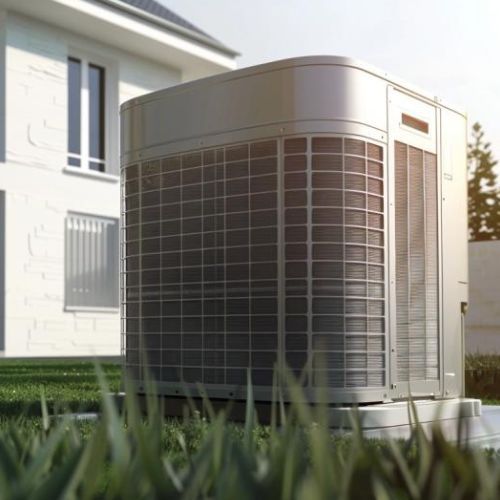
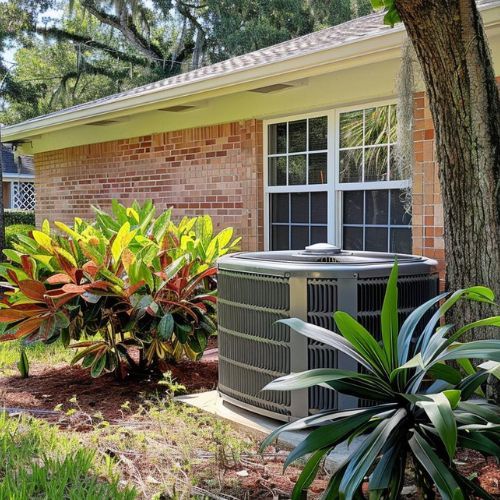
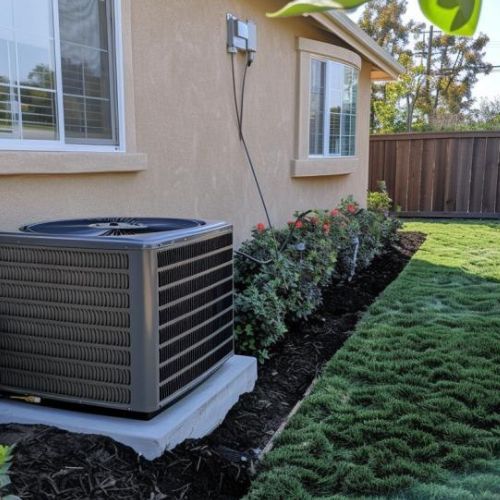
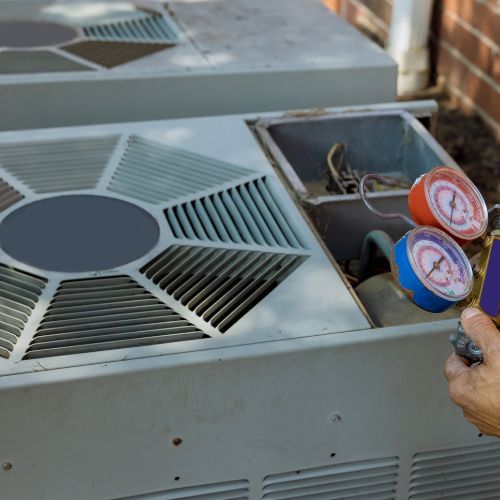
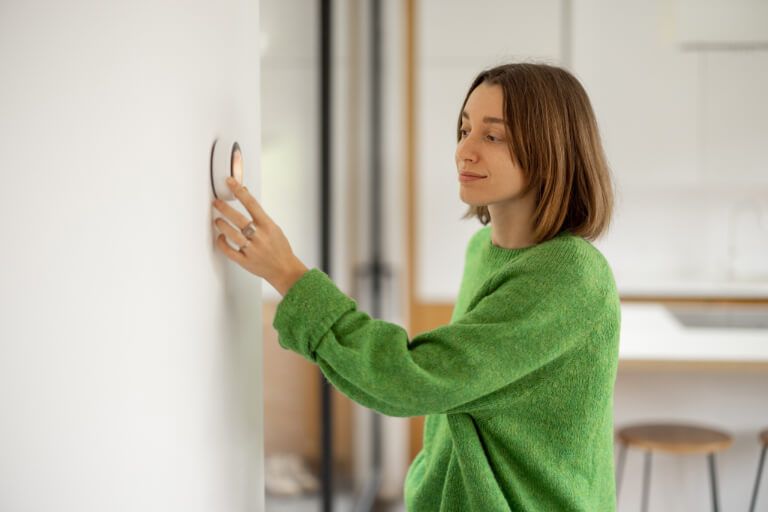
 Summer may be coming to an end, but it’s never too late to start thinking about how to lower your energy bill. One way to shrink your energy bill is to find the best AC setting for your needs. Elevated Comfort has found the best AC setting for sleep, work, and savings! With the right AC settings, you can keep your house cool and comfortable while keeping your energy bill manageable. Keep reading for more information on how to find the best AC setting for you!
Summer may be coming to an end, but it’s never too late to start thinking about how to lower your energy bill. One way to shrink your energy bill is to find the best AC setting for your needs. Elevated Comfort has found the best AC setting for sleep, work, and savings! With the right AC settings, you can keep your house cool and comfortable while keeping your energy bill manageable. Keep reading for more information on how to find the best AC setting for you! OSHA (
OSHA ( Now let’s get into the savings side of things. The Energy Star program
Now let’s get into the savings side of things. The Energy Star program